Bridging the Gap – August 2023
The collective principle asserts that…no society can legitimately call itself civilised if a sick person is denied medical aid because of lack of means.
Aneurin Bevan
5 July, 1948
Trafford General Hospital, part of Manchester University NHS Foundation Trust (MFT)
Hello and welcome to my latest blog.
As you’ll know, the NHS celebrated 75 years of service on 5 July. Since its foundation in 1948, the NHS has grown and evolved, and we see the difference health and care research can make to our participants, patients, and communities every day.
Embracing research and innovation is vital in delivering better outcomes and more personalised care for our diverse population. We are over 6 months into our new round of funding for the National Institute for Health and Care Research (NIHR) Manchester Biomedical Research Centre (BRC) and already our collective impact stretches far and wide. Addressing health challenges in this region as well as nationally and internationally, alongside reaching groups of people who may not have felt the same benefits previously, highlights that research really can improve people’s lives.
Manchester BRC transforms scientific breakthroughs into diagnostic tests and life-saving treatments for patients and key to our success is Equality, Diversity, and Inclusion (EDI). In collaboration with the NIHR Manchester Clinical Research Facility (CRF), we will soon be launching our first EDI Strategy. We have built this strategy around key pillars and developed a series of objectives which will underpin our activity for the next 5 years and be the lens through which we see and deliver all our research. We’ve also recently launched our new Patient and Public Involvement, Engagement and Participation (PPIEP) Strategy, which you can read on our website.
I fundamentally believe EDI should be at the heart of everything we do across Manchester BRC, because it is so important in supporting us to deliver our vision to provide personalised health and care for all. I recognise the value of a diverse workforce and how it can lead to greater creativity, advances and, ultimately, to better outcomes for our patients and the diverse communities we serve. I will keep you updated on how these strategies are delivering on our ambitions throughout the next 5 years.
Our vision to drive personalised, inclusive health and care for all, is also demonstrated with Manchester playing a leading role in mental health research following a £10 million boost of government funding, as part of the ‘Mental Health Mission’. This research has the potential to change and improve the lives of millions of people both locally and globally, addressing key issues including early psychosis and severe mood disorders which are currently under-researched.
This is fantastic news and demonstrates a strong start for our new Mental Health theme. This investment will help accelerate mental health research in Greater Manchester, Lancashire and South Cumbria and is an important step towards ‘parity of esteem’ for mental health research. “Parity of esteem” is the principle by which mental health must be given equal priority to physical health and was protected in law by the Health and Social Care Act 2012. For me, it is about a holistic view of our patients where we address physical and mental health as being equally important because they are fundamentally inter-connected.
Reducing health inequalities
Narrowing the health inequalities gap for patients with Systemic Lupus Erythematosus (SLE) is a global challenge which I, and colleagues from around the world, discussed in an edition of Rheumatology, published in April 2023. SLE is a rare multi-system autoimmune rheumatic disease, predominantly affecting females of child-bearing age and more prevalent in people of African and South Asian ancestry. Infection in SLE and other Immune-mediated Inflammatory Diseases (IMIDs) remains a significant issue causing increased morbidity and mortality.
Sheilla Achieng (pictured right), Clinical Research Fellow within the Rheumatic and Musculoskeletal Diseases theme was awarded a Houghton Dunn R&I Pump-Priming Fellowship Award. For this, she has been analysing the long-term risk of infection in patients with moderate-severe SLE in the UK, with a group from the British Isles Lupus Assessment Group Biologics Registry (BILAG-BR).
Subsequently, Sheilla will also be looking at infection risk in patients with lupus in Kenya compared to the UK. Through a Wellcome PhD fellowship, funded by the University of Liverpool Clinical PhD Program for Health Priorities in the Global South, she will be working with colleagues in Kenya to carry out an analysis of the incidence, risk factors and patterns of infection in SLE patients in Kenya.
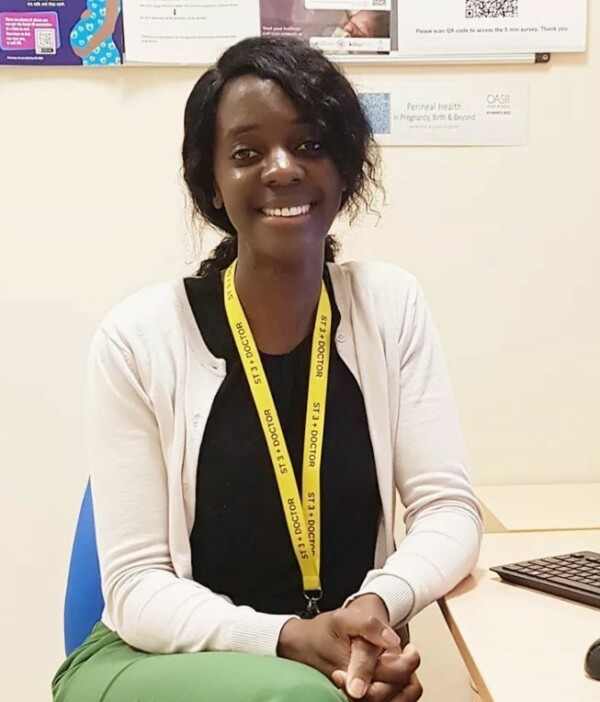
By understanding the burden of, and risk factors for, infection in SLE in a global context, we will be able to develop more relevant recommendations for interventions that can improve the balance between disease control and infection risk in IMIDs globally.
This is another great example of how cutting-edge research can enable us to make steps towards improving patients’ lives, patient outcomes and access to care for all.
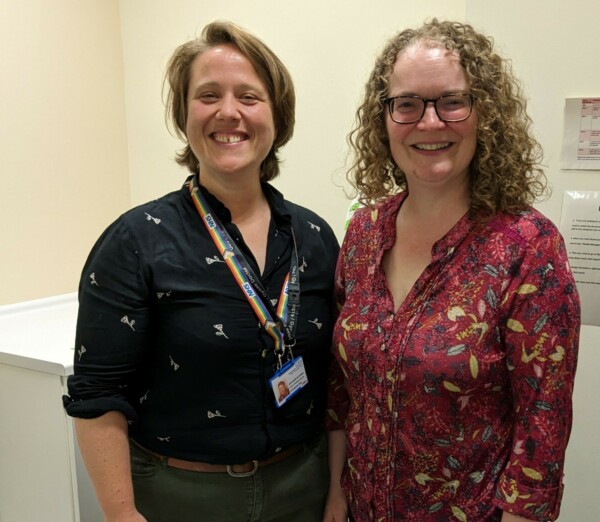
Access to care is also something that our Cancer Prevention and Early Detection (PED) Theme, has been leading on as part of research into cervical cancer and human papillomavirus (HPV) and developing alternative self-sampling methods. In One In Two, a Manchester Cancer Research Podcast, Dr Jen Davies-Oliveira (pictured left), currently undertaking a PhD in early detection cancer research, and Professor Emma Crosbie (pictured right), PED Lead and Cancer Cluster Lead, discuss the importance of alternative approaches to cervical screening.
With lower cervical screening uptake in communities such as the LGBTQIA+ community, they wanted to explore how addressing barriers to screening can be achieved through greater engagement with marginalised groups, ethnically diverse communities and the importance of developing an inclusive approach to screening.
Wider BRC news, awards and accolades from across our four Clusters
Cancer
- Living With and Beyond Cancer (LWBC) is an important new research theme and Sunday 4 June marked National Cancer Survivors Day. Earlier detection and better treatments mean more than 3 million people in the UK are now living with and beyond cancer and this figure will continue to rise. We know that some cancer treatments increase risks of other health problems which can impact significantly on the quality and length of life after cancer. Dr Louise James, Senior Research Project Manager shares an insight into our new theme with her blog. I would also like to highlight how this work, led by LWBC Theme Lead Professor John Radford, is directly impacting patients now by sharing Jack’s incredible story. Jack is a father of 3 from Stockport, whom the research team has worked closely with.
- Prof Radford and his team (pictured right) were recently awarded a UoM Social Responsibility Making a Difference Award. Using cancer registry and radiotherapy treatment centre data, they established BARD, a national database of women at high risk of breast cancer after radiotherapy aged 10 – 35 years. BARD is now included in national guidelines for very high-risk screening which truly demonstrates the impact BRC research can have in improving access to screening and patient outcomes.
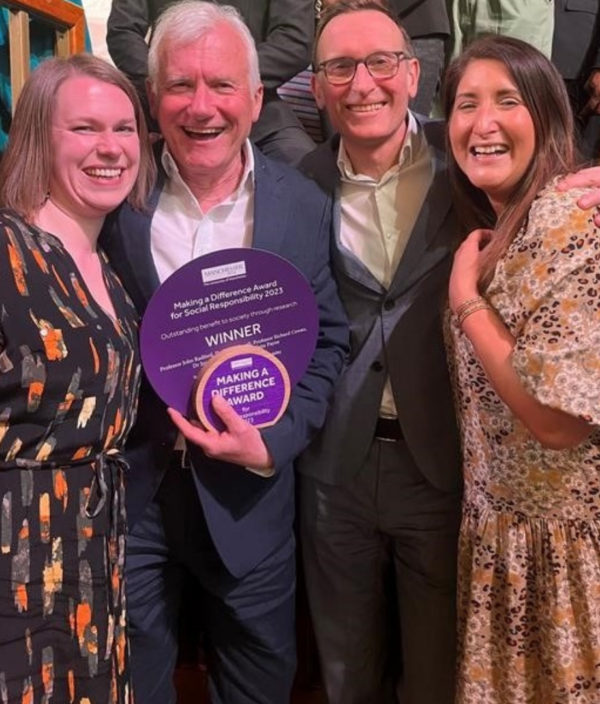
- Dr Sacha Howell, investigator on our Cancer Prevention and Early Detection theme has received widespread media coverage for his work to develop a set of tools that will identify young women who are most at risk of breast cancer. This pioneering cancer research project, to improve survival rates, was launched in June in memory of pop singer Sarah Harding, who sadly died from breast cancer, aged 39.
- Led by Professor Gareth Evans, our Cancer Prevention and Early Detection theme has also developed a way to improve the accuracy of breast cancer genetic testing for women from Ashkenazi Jewish backgrounds. This is part of a wider Manchester-based project which aims to develop accurate tests for women of different ethnicities and reduce inequalities in testing. This was covered by BBC Radio Manchester and news websites In Your Area and Jewish News.
Inflammation
- In our latest contributions to Arthritis Digest, a magazine for people with arthritis that highlights relevant research and reviews topical issues, BRC researcher Dr Jenny Humphreys (Rheumatic and Musculoskeletal Diseases theme), explains what happens during the transition from paediatric to adult rheumatology services for people with juvenile idiopathic arthritis. Dr Meghna Jani also discusses balancing the risks and benefits of using opioids to treat pain for people with musculoskeletal conditions.
- Dr Lianne Kearsley-Fleet, epidemiologist at the Centre for Epidemiology Versus Arthritis (Rheumatic and Musculoskeletal Diseases theme), has been awarded a £750,000 5-year career development grant from Versus Arthritis. In this Career Development Fellowship, she plans to investigate long-term outcomes in adults with juvenile idiopathic arthritis.
- Professor Suzan Verstappen (Rheumatic and Musculoskeletal Diseases theme) was involved in the new World Health Organisation (WHO) package of interventions for rehabilitation for rheumatoid arthritis. The interventions were developed by experts from across the world and will inform, amongst others, the ministries of health globally.
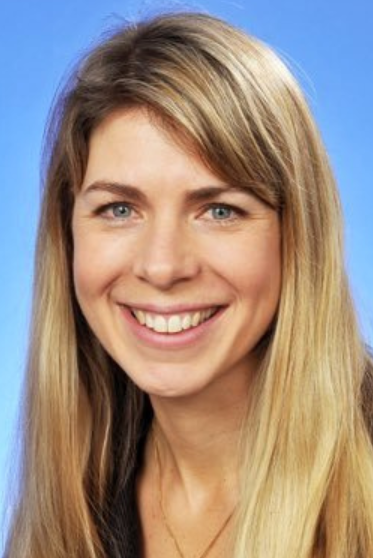
- Professor Jacky Smith, Respiratory Medicine Co-Theme Lead, and Dr Hannah Durrington (pictured left), Respiratory Medicine PPIE Lead, presented at the American Thoracic Society conference in Washington in May. Hannah chaired a scientific symposium about biological timing in lung disease and gave a talk entitled ‘Asthma…It’s a Matter of Time!’ while Jacky presented her research into treatment for unexplained chronic cough. Jacky also gave the closing talk at the 9th American Cough Conference, where she summarised recent developments in new treatments for cough.
- Professor Alex Horsley, Respiratory Medicine theme researcher, presented new data on the next-generation triple therapy for Cystic Fibrosis (CF) at the 46th European CF Conference in Vienna in June. Manchester is helping to lead the way for these life-changing CF trials.
- Academic Clinical Lecturer supporting our Respiratory Medicine theme, Dr Alexander Mathioudakis, was awarded a £181,000 grant as part of the NIHR’s Health Technology Assessment Programme. His aim is to determine the best tests to detect which patients are more likely to benefit from inhaled steroids, using data from existing research studies with chronic obstructive pulmonary disease and asthma patients.
- Congratulations to Professor Martin Rutter, researcher within the Integrative Cardiovascular Medicine theme, who applied for and gave the ‘RD Lawrence Award Lecture’ at the Diabetes UK Annual Professional Conference in Liverpool earlier this year. This described a 30-year evolution in clinical and genetic epidemiology research in diabetes. With examples from his own work and others, it showed how changing research questions, methods and databases have delivered increasingly meaningful patient benefits.
- Well done also to Dr Adrian Parry-Jones, Integrative Cardiovascular Medicine theme researcher, and the team (pictured right) on winning a UoM Social Responsibility Making a Difference Award. They developed an Acute Bundle of Care for intracerebral haemorrhage, a type of stroke, helping to save lives.
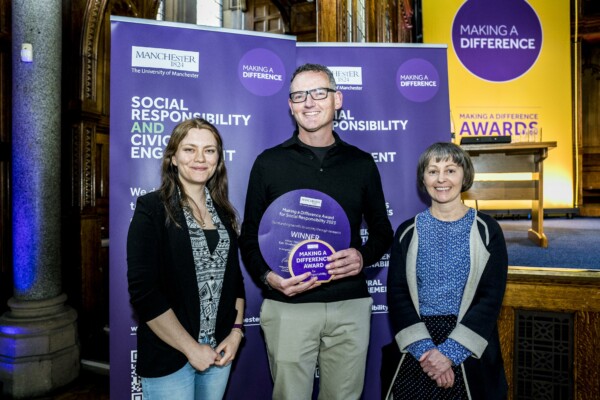
- The European Society of Hypertension released new guidelines in June on the management of hypertension and Professor Maciej Tomaszewski, Co-Lead for our Integrative Cardiovascular Medicine theme, was one of the members on the expert panel. The guidelines issued every 2 to 3 years, provide the most comprehensive and up-to-date source of information on how we should manage hypertension (high blood pressure), which affects approximately 1 in 3 adults globally. The new guidelines offer healthcare workers insights and knowledge in a range of areas including prevention, detection, drug and lifestyle treatment, and how best to implement in clinical practice.
High-burden Under-researched Conditions

- Dr Shruti Garg (Mental Health theme, pictured left) is part of a team from The University of Manchester (UoM), and other universities, who examined GP data showing a large rise in eating disorder diagnoses and self-harm episodes amongst teenage girls in the UK, since the Covid-19 pandemic. You can read more about this study, published in the Lancet, on the BRC website.
- I was delighted to see that UoM Chancellor Nazir Afzal OBE became the 1,000th person in Greater Manchester to take part in the Genes and Health Study. This huge research project is trying to understand why people of Bangladeshi and Pakistani heritage have some of the highest rates of heart disease, diabetes and poor health in the UK. Professor Bill Newman is the Principal Investigator for the study in Greater Manchester and Co-Lead for our Rare Conditions theme.
- A new UK Rare Disease Research Platform has been announced with £14 million investment over 5 years by the Medical Research Council and NIHR to improve diagnosis and treatment through better understanding, with Rare Conditions theme researchers playing a central role. Co-Leads Prof Newman and Professor Siddharth Banka, along with Dr Ramona Moldovan (pictured right), will lead 3 of the 11 specialist nodes.

- Also in our Rare Conditions theme, researcher and clinician Dr Alexander Blakes, talks about how health data from the 100,000 Genomes Project is helping him deliver new diagnoses to patients in a blog for Genomics England.
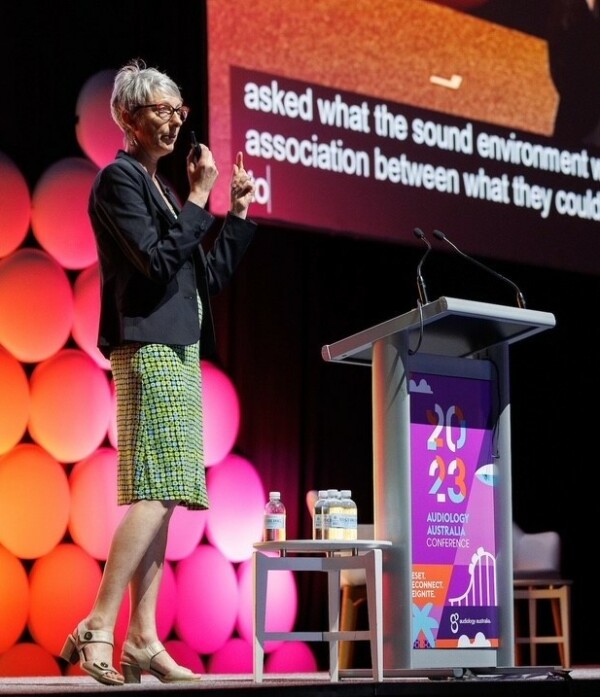
- Hearing Health theme researcher Dr Gabrielle Saunders (pictured left) was invited to give a keynote address at the Audiology Australia conference in May. Her talk ‘Seeing what your patients hear – using photos in auditory rehabilitation’ discussed ways in which photographs provided by patients could be used to support their rehabilitation, including for hearing aid counselling, family-centred care and communication strategies.
- BRC Hearing Health theme scientists have also shown that hearing loss is unlikely to be a common symptom of Covid-19.
Disease Complexity and Multi-morbidity
- One of our other new themes, Next Generation Therapeutics (NGT), recently advertised a call for pump-prime proposals and I am very pleased to say 5 BRC projects have been awarded. These include; Dr Tim Felton (Diagnosis and treatment of acute respiratory infections and acute exacerbation of chronic respiratory conditions), Dr Tracy Briggs (Transcriptomic signatures in ‘Systemic Autoimmune Rheumatic Diseases’), Dr Sandra Vranic (A nanomaterials approach in the treatment of ‘Lysosomal Storage Diseases’), Dr Michael Hughes (SSc related calcinosis) and Prof Banka (Assessing trial readiness for Rare Conditions).
- NGT has also contributed to Translation Manchester’s recent ‘Access to Expertise’ funding call, a scheme which enables researchers to access expertise to unblock translational bottlenecks. This funded 1 application which related to ‘Gene therapy in early onset bladder disease’ led by Dr Neil Roberts. NGT will be contributing to and circulating future funding calls, so please do keep an eye out for more information and any collaboration opportunities
- Also, the NGT theme resident biostatistician, Matthew Parkes, is planning ‘Clinical trial clinics’ for investigators to access trial method expertise and develop study proposals. This is planned to start soon so there will be more information on that in due course.
****
Speaking of awards, NIHR has launched the 17th round of the Senior Investigator Awards, funded by the Department of Health and Social Care, and I would strongly encourage applications from across all our 13 research themes and core areas of activity.
The NIHR Senior Investigator Award is a personal award in recognition of an individual’s outstanding contribution to research, as well as their leadership role within the NIHR.
NIHR Senior Investigators are some of the most outstanding leaders of health and social care research. They provide visible leadership, support the strategic priorities of the NIHR and are expected to contribute significantly to the NIHR as senior leaders, and act as ambassadors and role models. Earlier this year, 7 professors from across Manchester BRC were appointed Senior Investigators by the NIHR for 2023, so I would certainly support a wide range of applications for next year’s cohort. For support in progressing an application, email BRC Strategic Projects Manager Lynsey Priest. Applications close on 23 August 2023.
Events
I was very pleased to see the launch of our new Training Event and Seminar Series, which will highlight the breadth of our BRC’s experimental medicine research and stimulate scientific discussion and collaboration.
Our objectives are to develop insights into key core areas such as innovation, Patient and Public Involvement and Engagement (PPIE), Team Research, and how they are being applied across our research. By doing so, we will create a diverse community of learning, share development opportunities and foster engagement for staff, students, public and patients and wider partners.
Following the High-Burden Under-Researched Conditions (HBUR) Cluster networking event held in June, the second event in this series ‘Exploring the fog: Unravelling the link between cognitive function and fatigue in systemic lupus erythematosus and other musculoskeletal conditions’ took place in July. You can watch the session again here or find out more about the future events on the BRC website.
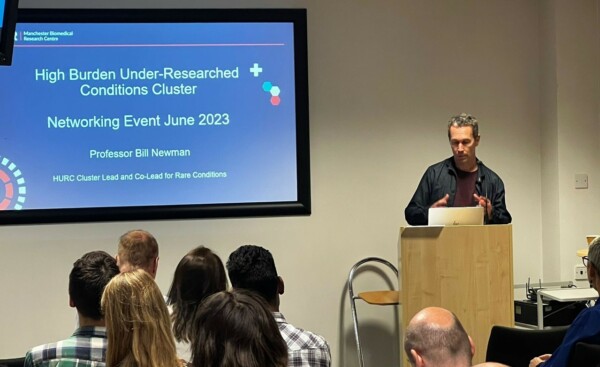
You may have also attended the Diagnostics in Health Care Innovation Lab 2023 held recently in partnership with UoM, the Diagnostics and Technology Accelerator (DiTA) at MFT, Bruntwood SciTech, and hosted by Translation Manchester. With the aim of developing teamwork and addressing specific business challenges within the diagnostics sector, there were 3 BRC colleagues as panel judges – Professor Rick Body, Dr Tim Felton and Dr Colette Inkson – and the lab successfully helped create four new academic-industry associations.
The Manchester Rare Conditions Centre (MRCC) held an event to celebrate their first anniversary recently. The event provided a great opportunity to highlight the significant strides Manchester has made in improving the lives of individuals with rare conditions and showcase the progress the centre has made in its first 12 months.
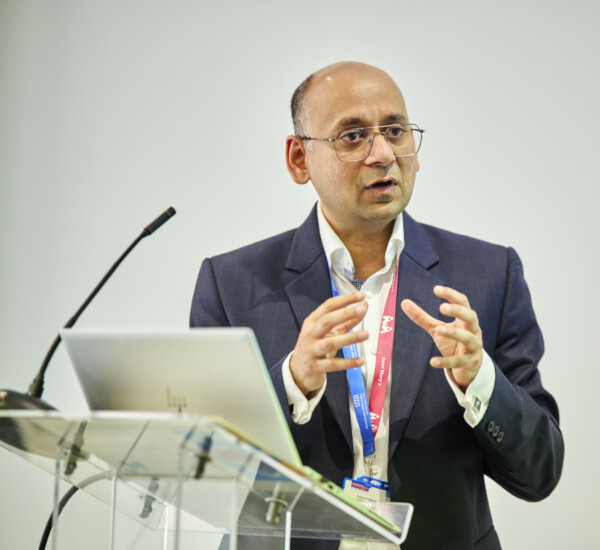
Prof Banka (pictured left), Clinical Director of the MRCC and Co-lead of our Rare Conditions theme, led a series of talks explaining the history and strategic aims for the future of the MRCC while also highlighting some individual success stories, including Manchester’s contribution to the discovery of more than 50 new genetic disorders in the last 2 years alone. MRCC has also contributed to establishing world-leading DNA-methylation diagnostic testing strategies, the creation of the NHS’s first Functional Genomic Diagnostic Unit and establishing a number of highly specialised clinical services for rare conditions.
Looking ahead, a date for your diary is Wednesday 13 September when the annual Translational Research at Manchester: Early Career Researchers (ECR) Event will be held at the Core Technology Facility. Organised by Translation Manchester, the event will focus on the ECR journey and signpost to useful resources and services. Register for the event now on Eventbrite.
We also recently celebrated research and our brilliant BRC colleagues and participants through International Clinical Trials Day, Red4Research Day and International Nurses Day.
Core Team Infrastructure
Manchester BRC is proud to support a ‘Team Research’ approach to encourage inter-disciplinary, collaborative ways of working. I would encourage you to watch and share this brand new animation from UoM showcasing how solutions to global challenges can only be found through the collective input, strengths and expertise of many different people working together in a team, an ethos we share and promote through all our work.
The NIHR is also hosting a ‘Team Science’ camp on Tuesday 26 and Thursday 28 September in Crewe, which aims to bring together researchers with an interest in multiple long-term conditions from a variety of disciplines and with a wide range of experiences to tackle complex current and emerging health and care challenges. The Team Science Award is up to £100k to support research teams to collaborate on a future application to other research programmes, expand their research network, and develop research capacity. The first stage of the programme is the Team Science Camp. Please see details here of UoM’s Team Research/Science programme and reach out to Charlie Stockton-Powdrell or Ruth Norris should you wish to discuss any support or information needed for your bid. The deadline for expressions of interest is Friday 25 August and for more information about the event, visit the NIHR website.
We have recently submitted our first 4 months activity data to the NIHR and I would like to share with you some highlights:
- 224 projects supported by the BRC
- 100 BRC-linked research publications
- £22,707,057 of leveraged income
- 3,937 participants recruited to projects
- 27 Strategic Industry Partnerships and 44 SME links
I would like to take this opportunity to thank the team for bringing all this data together and it certainly shows we are off to a great start.
I am also delighted to bring you news that the NIHR Immune-Mediated Inflammatory Disease (IMID) BioResource has reached a major milestone in recruiting its 10,000th volunteer nationwide. Launched in Manchester in September 2020, the IMID BioResource is led by Manchester BRC, in collaboration with NIHR Newcastle BRC and NIHR Leeds BRC – with MFT acting as sponsor and support from the NIHR Manchester CRF and The University of Manchester. It is great to know that the patients we have recruited have generated interest for future research.
We recently had the pleasure of welcoming our colleagues from Leeds and Sheffield BRCs to Manchester. We are already closely collaborating with Leeds, Sheffield and Newcastle BRCs and the meeting certainly identified several additional areas which we will progress over the coming months through the Northern BRC Operations Group, chaired by Lisa Miles, our BRC Operational Director.
And finally…
Finally, I want to take time to recognise Professor Kevin Munro’s (pictured right) tremendous contribution to audiology research and our Hearing Health theme. He will be reducing his hours from this summer to take up new opportunities. His involvement began in 2011 when Hearing Health was shortlisted for a Biomedical Research Unit. Kevin has overseen huge success for this theme and has made a huge contribution towards Manchester being recognised as one of the leading UK centres for Hearing Health research. Kevin will be stepping back from his leadership role at the Manchester Centre for Audiology and Deafness and as our Hearing Health Theme Lead.
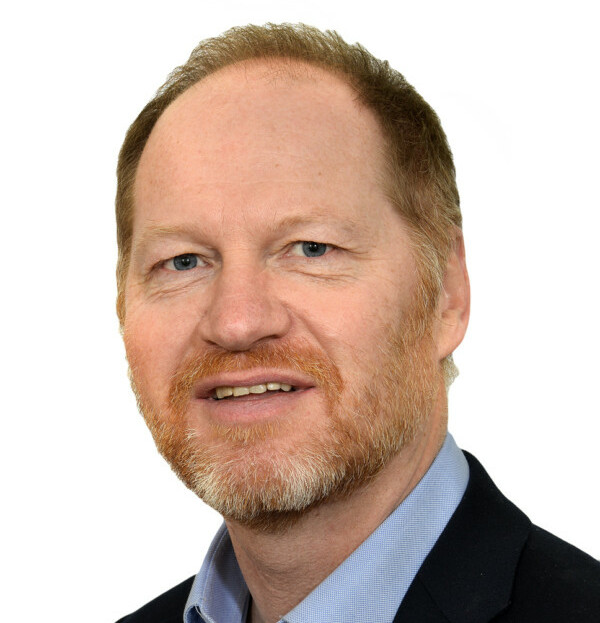
Kevin has deputised for me at several national meetings and has been a source of wise counsel in the strategic and operational direction of our BRC over the past 7 years. I want to wish him all the best in the next steps in his career.
Kevin, along with co-authors Dr Michael Stone and Dr Gabrielle Saunders wrote a blog to celebrate Manchester’s contribution to providing care for people with hearing loss to mark the NHS’s 75th birthday which you can read on the BRC website.
Research and innovation continues to make a huge difference to the health of our diverse population, improving patient outcomes and the way we deliver healthcare not just in this region, but nationally and internationally. Thank you to everyone who continues to support, contribute, or participate in clinical research to help shape our future. Here’s to the next 75 years.
Take care and have a lovely summer,
Professor Ian N Bruce
Director, NIHR Manchester BRC
